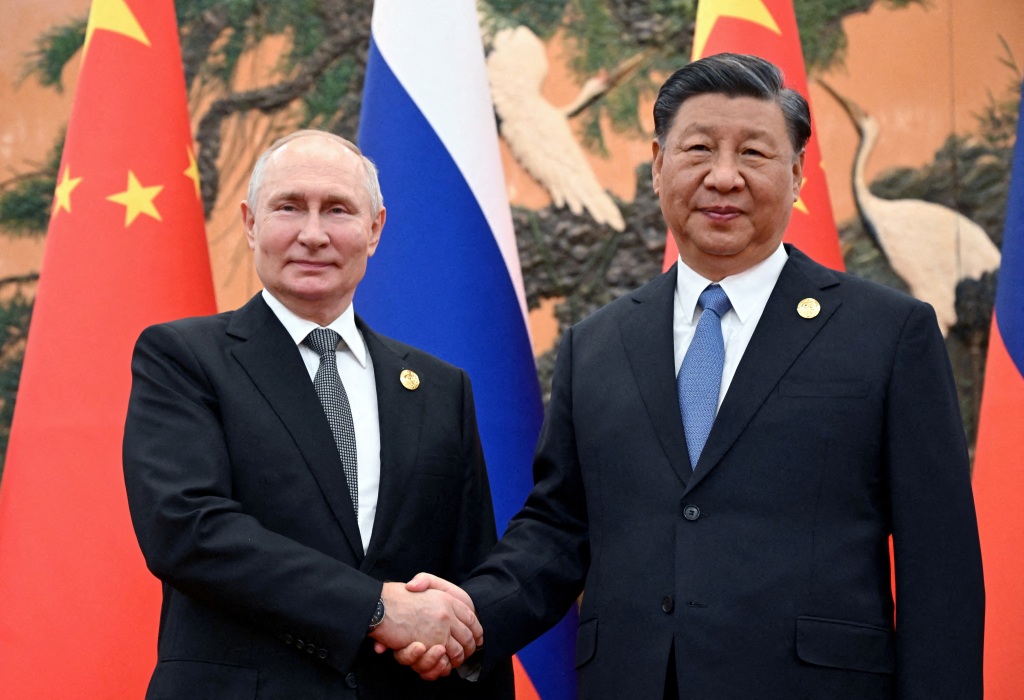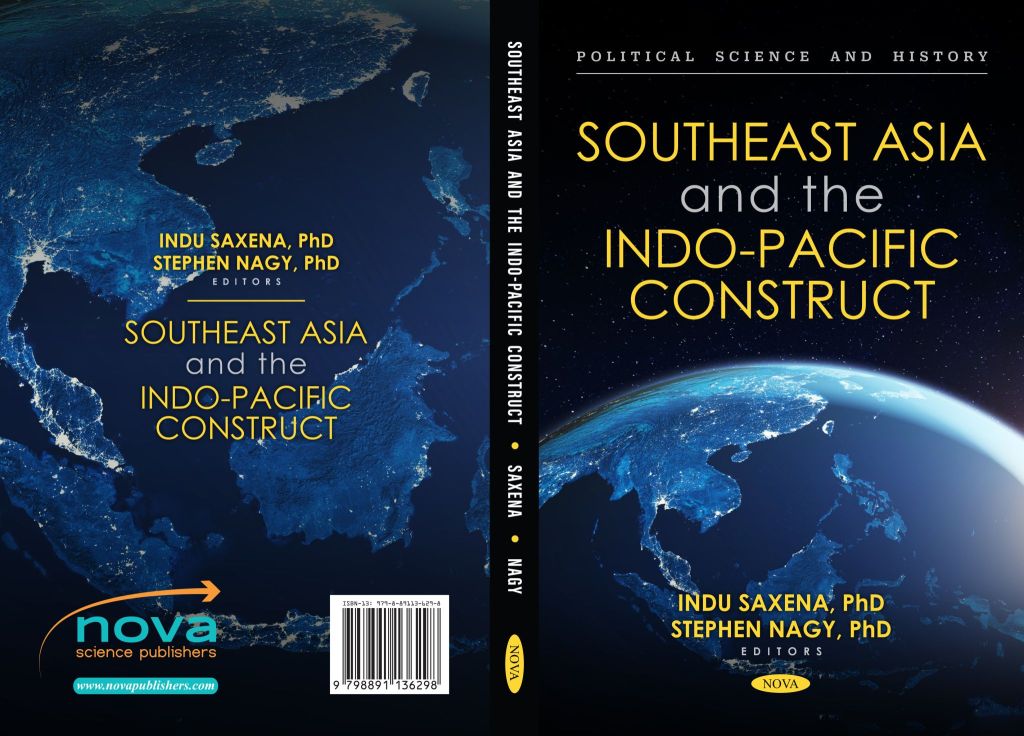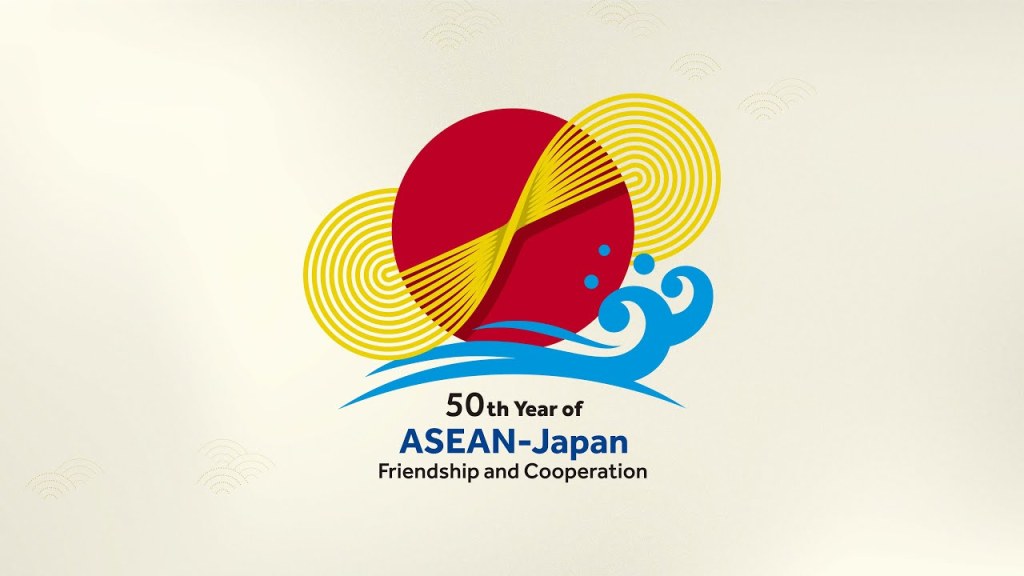Russian President Vladimir Putin’s visit to China last week marked a significant moment in the evolving relationship between Moscow and Beijing. The visit, accompanied by a series of high-level meetings and agreements, underscored the deepening partnership between these two major powers. It also marked the 75th anniversary of diplomatic relations between China and the former Soviet Union.
Moscow and Beijing share a multi-polar vision aimed at weakening the rule of law and Western-led international institutions, making them more favorable to the authoritarian systems both countries uphold. Growing multi-alignment also contributes to Russia and China’s goals by preventing the U.S. and its Western allies from closely aligning on issues important to both nations.
One cannot overlook the significance of this visit in the context of regional geopolitics. The strengthening of China-Russian relations has profound implications for neighboring countries. For instance, Central Asian nations, which have historically been within Russia’s sphere of influence, are now witnessing a nuanced shift as China expands its Belt and Road Initiative throughout the region. This dynamic creates a new power equilibrium that neighboring states must navigate carefully.
The question is whether the deepening ties are based on strength or insecurity. In either case, their alignment will impact global diplomacy, regional stability and the international order based on the rule-of-law.
Putin’s visit to meet with Chinese leader Xi Jinping followed the Russian president’s reelection in May, as well as Russia’s recent incremental success in the war with Ukraine. It remains to be seen what impact the latest influx of U.S. and EU financial and military assistance will have on the war.
Russia’s current situation in Ukraine is far from ideal. Apart from the loss of Russian lives, Putin’s government now faces the responsibility of paying disability pensions to injured soldiers and death benefits. The Kremlin must also address the economic impact of many young people being unable to contribute fully to the economy.
The Russian economy is increasingly growing reliant on military production and the cheap export of energy at highly discounted rates to China. The consequence of this reliance is that the economy is diverting resources and human capital into a limited number of sectors, making it difficult to diversify the economy in terms of goods, services and technology.
Sergey Vakulenko of the Carnegie Endowment for International Peace, for his part, has warned that the labor implications of Russia’s invasion are becoming severe. These include an exodus of skilled Russian workers who have fled the country since the beginning of the war, as well as a decrease in migrant workers entering Russia, severely tightening labor supplies.
In short, the invasion of Ukraine has left Russia weaker and more insecure.
This has several implications for Russia’s partnership with China. First, Moscow now finds itself in a subordinate relationship with Beijing. This role, frustrating as it is for Russian nationalists, makes Russia increasingly subject to China’s agenda. Second, China may have an indirect influence on events in Russia, as domestic political, economic and other instabilities have the potential to destabilize China’s already fragile socioeconomic environment.
While China is now in the driver’s seat as far as the relationship goes, its own trajectory faces serious challenges. These include demographics, high youth unemployment, a post-pandemic lack of confidence in the domestic economy, being cut off from advanced technologies and the growing trend of selective diversification away from the Chinese market due to costs, geopolitics, and the emergence of new manufacturing centers.
China needs Russia’s cheap energy. The collaboration between Russia and China also extends to multilateral platforms. Both countries have been vocal advocates for reforming international institutions to better reflect the realities of the 21st century. During the visit, there was a renewed call for strengthening the roles of organizations like the BRICS club of emerging nations, the Shanghai Cooperation Organization and the United Nations. By working together in these forums, Russia and China aim to promote a more inclusive and representative international order that supports their systems of government.
In the area of technology and innovation, the visit highlighted the potential for increased cooperation. Both nations are investing heavily in emerging technologies such as artificial intelligence, quantum computing and space exploration. By pooling their resources and expertise, Russia and China can accelerate their technological advancements and reduce dependence on external sources. This technological collaboration not only enhances their competitiveness, but also ensures that they can shape global technological standards and norms.
Unspoken but deeply concerning for Beijing are its anxieties over a potential Russian defeat in Ukraine and the implications for Chinese security. China fears that a defeated Russia would leave it isolated in the international order with no close allies. Chinese leadership worries that if Putin were to be removed through defeat, coup, assassination or other means, the next leader could be even more nationalistic, unstable and inclined toward conflict.
China’s support for Putin’s Russia is simply based on the logic that it is much better to work with the devil you know than don’t know. Yet the deepening Russo-China alignment may not reap the rewards both leaders seek.
First, if Putin loses the war in Ukraine or if it turns into an insurgency, Russia will become a highly distracted partner for Beijing at best, and at worst, a new version of North Korea but with more nuclear weapons. Beijing desires a stable, predictable and reliable partner in Russia, not a semifailed nuclear state embroiled in war.
Second, Putin won’t live forever and when he is gone, Beijing’s reputation will be tied to supporting Russia’s illegal war with Ukraine, bringing to life the old adage: “Tell me who your friends are, and I will tell you who you are.” This will serve as a warning to Japan and other like-minded countries regarding China’s unwillingness to enforce international law when a country flagrantly and illegally invades another.
And third, China’s inability to influence Putin to stop his war in Ukraine demonstrates that despite the lopsided economic relationship with Russia, Beijing is either unwilling or unable to stop or affect Moscow’s actions. If Xi cannot exert influence over Putin, it suggests that Beijing’s leverage in Russia is weaker than previously thought. And if Beijing is unwilling to act, it will only further push the EU, Japan and other U.S. allies into the U.S. camp.
So rather than being an indication of strength, Putin’s visit to China last week demonstrated insecurity and what American strategist Edward Luttwak calls “Great State Autism.” In other words, both countries are unable to accurately read the tea leaves of international relations.
This article was first published on May 22, 2024, at The Japan Times.
Photo Credit: Reuters





Leave a comment